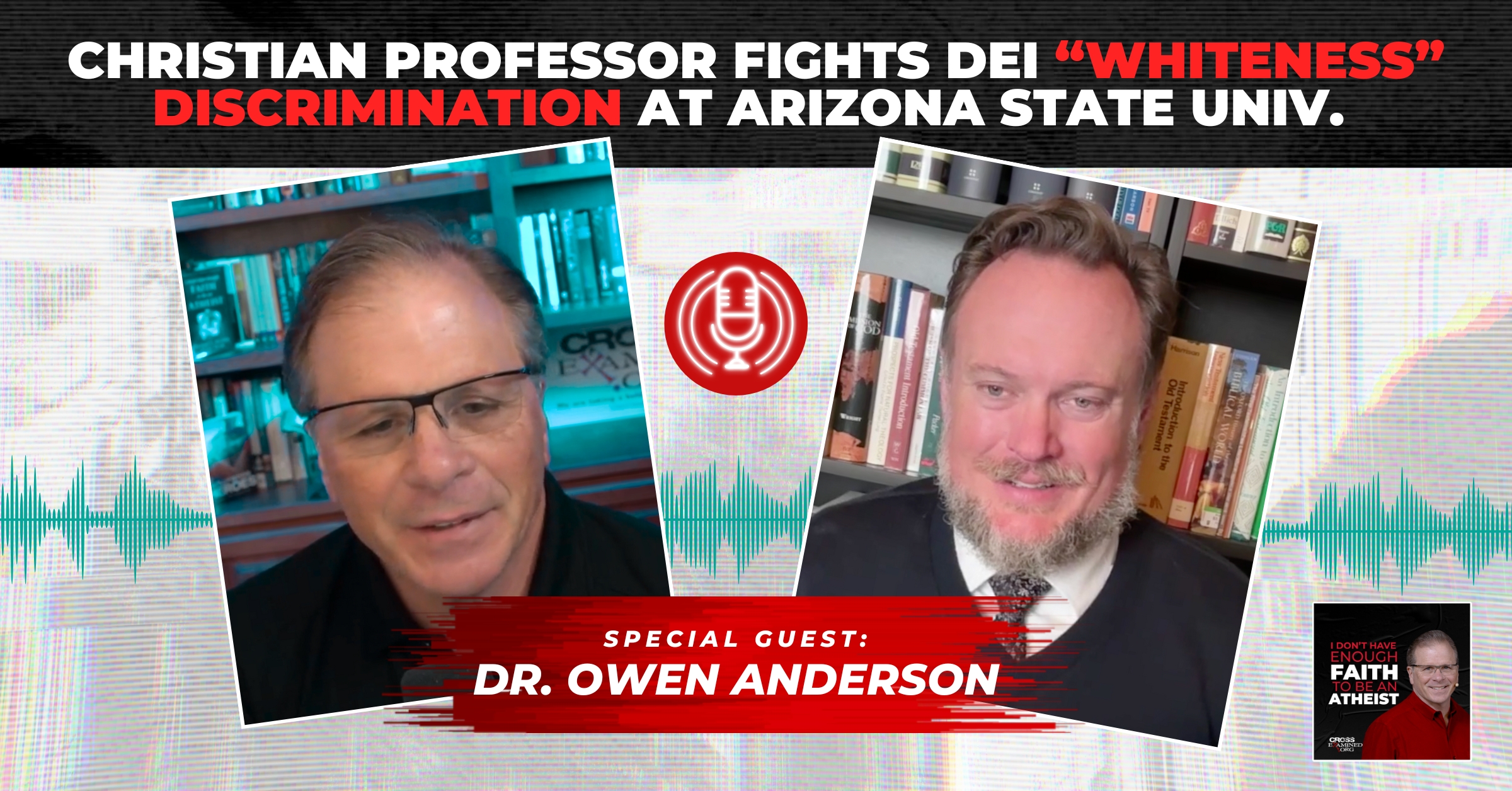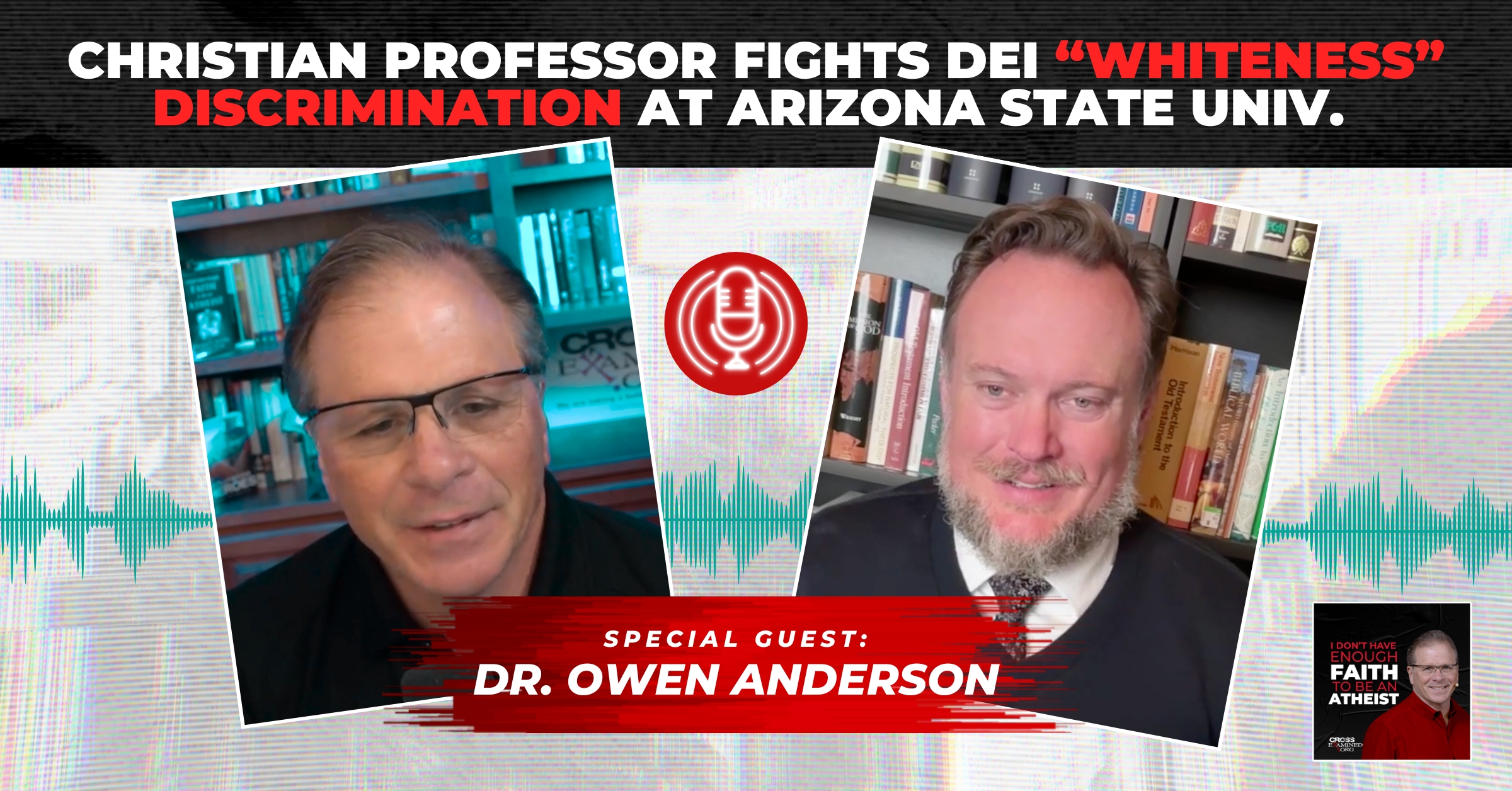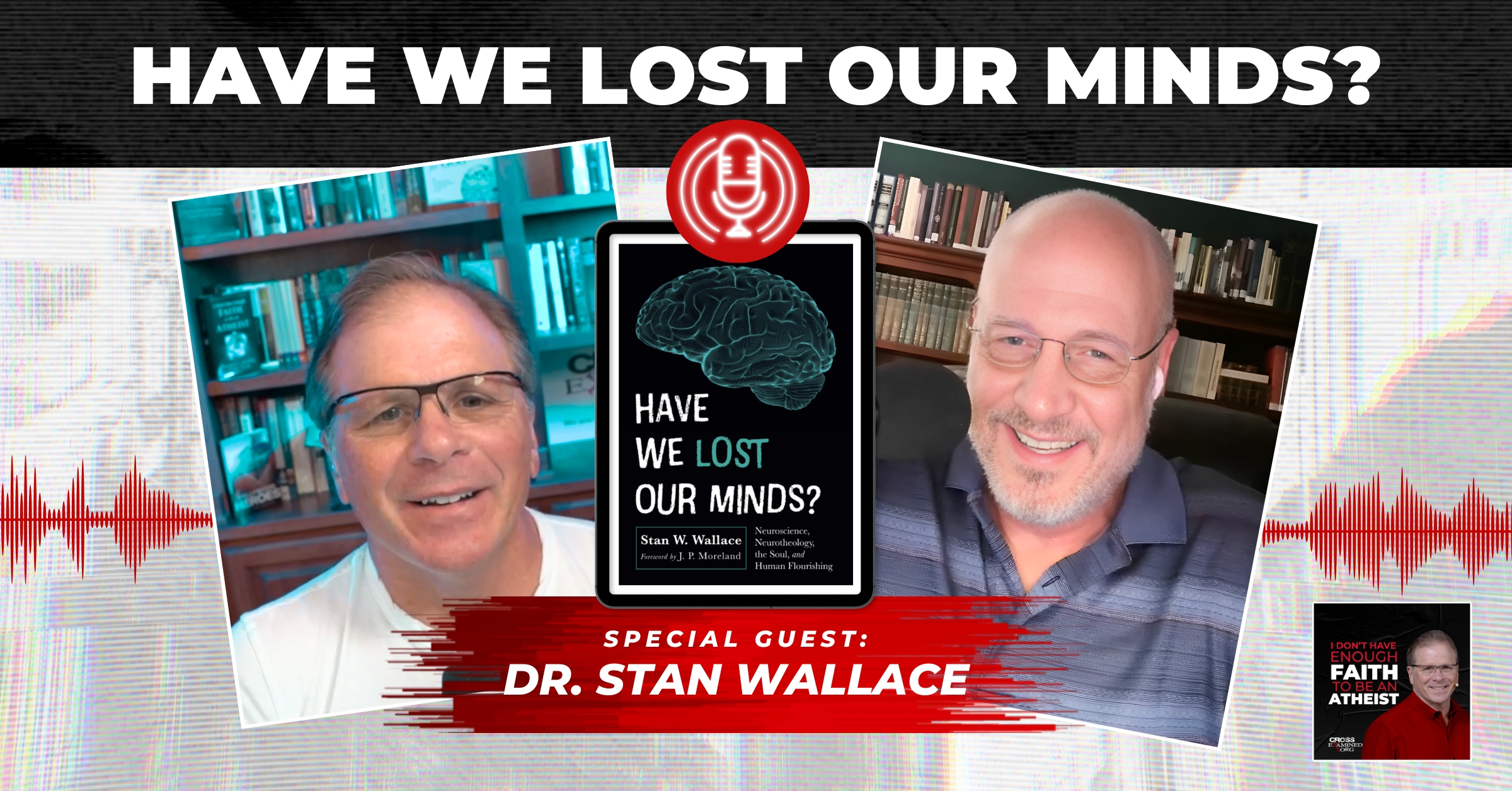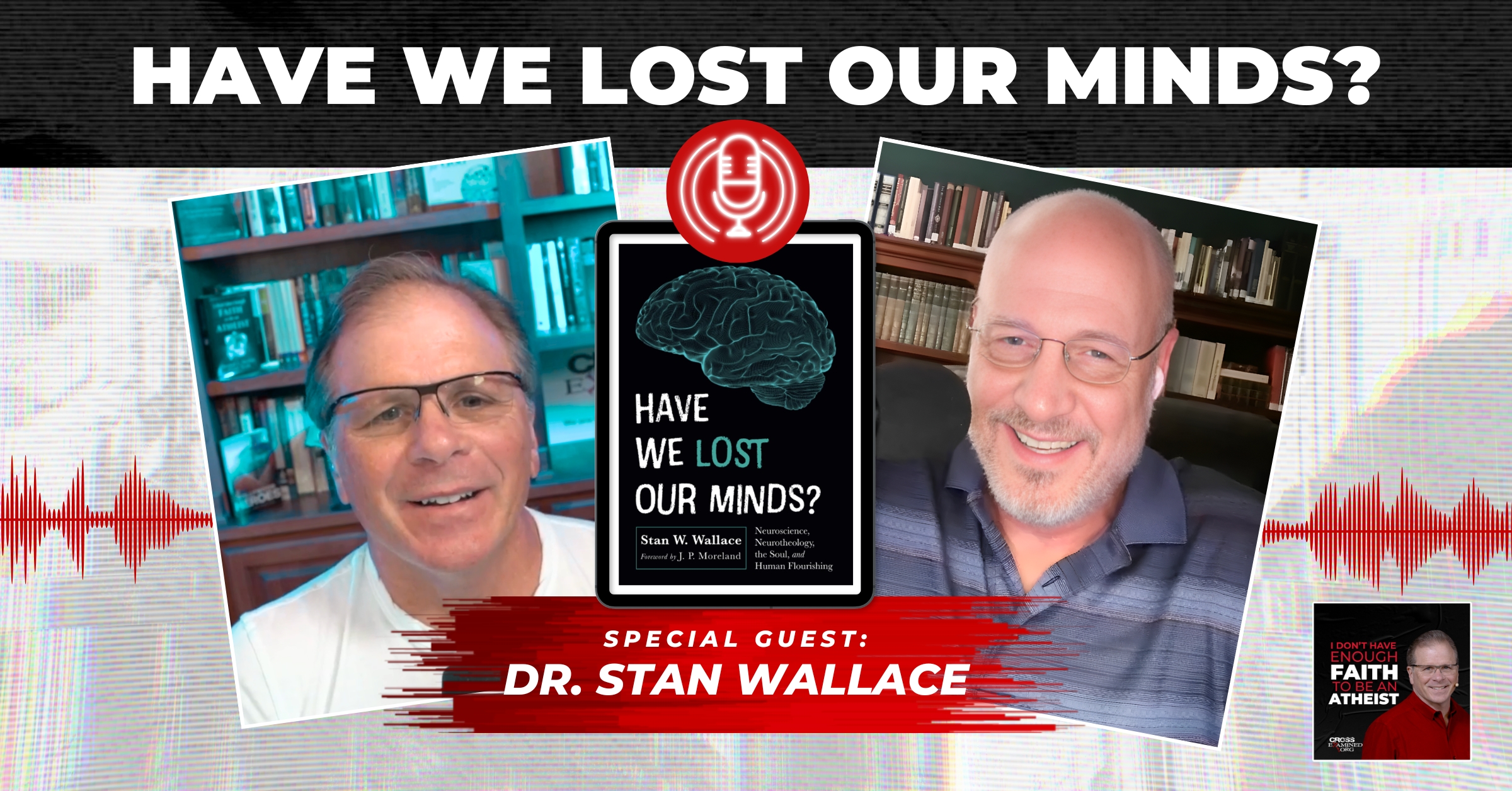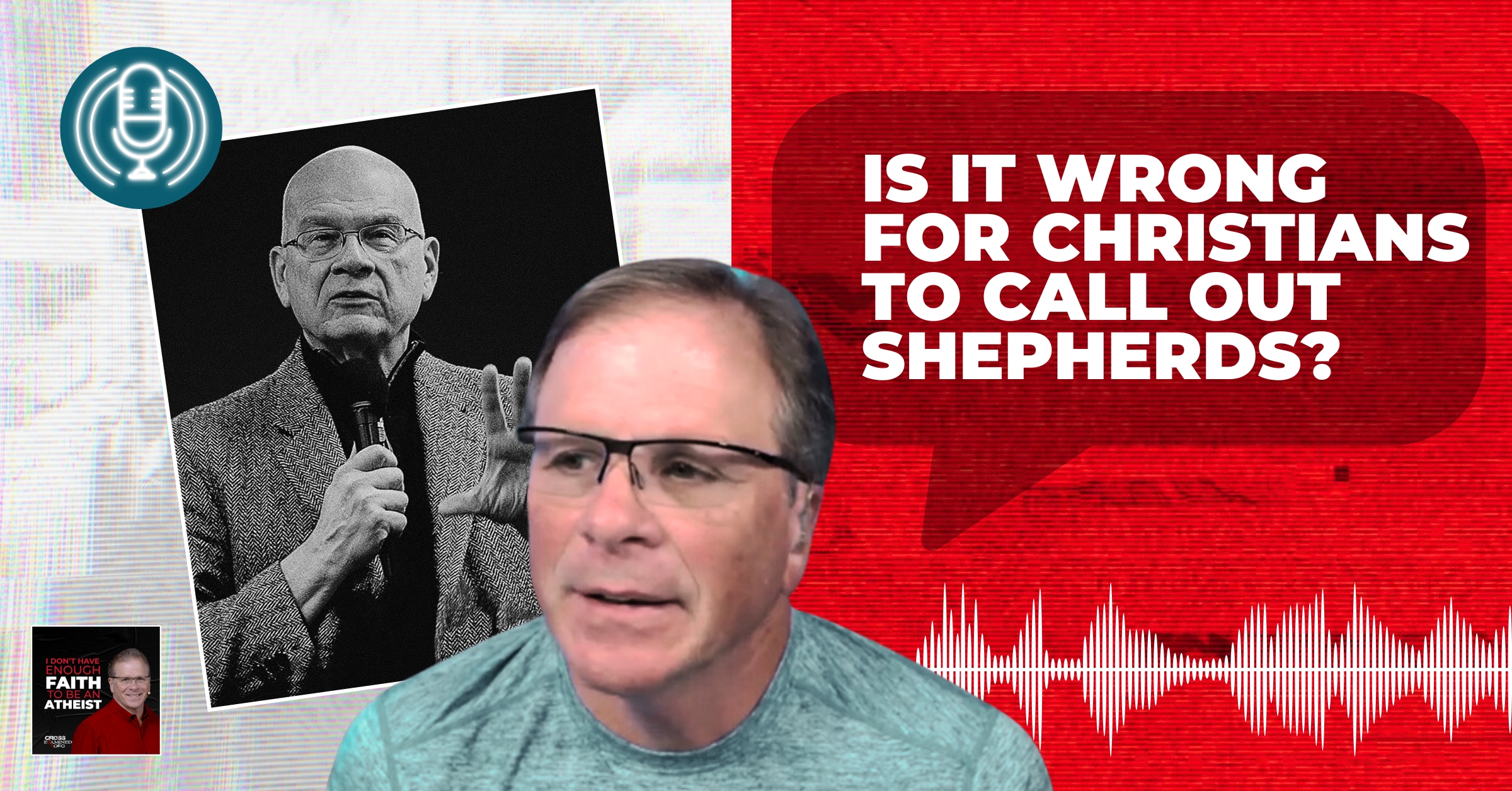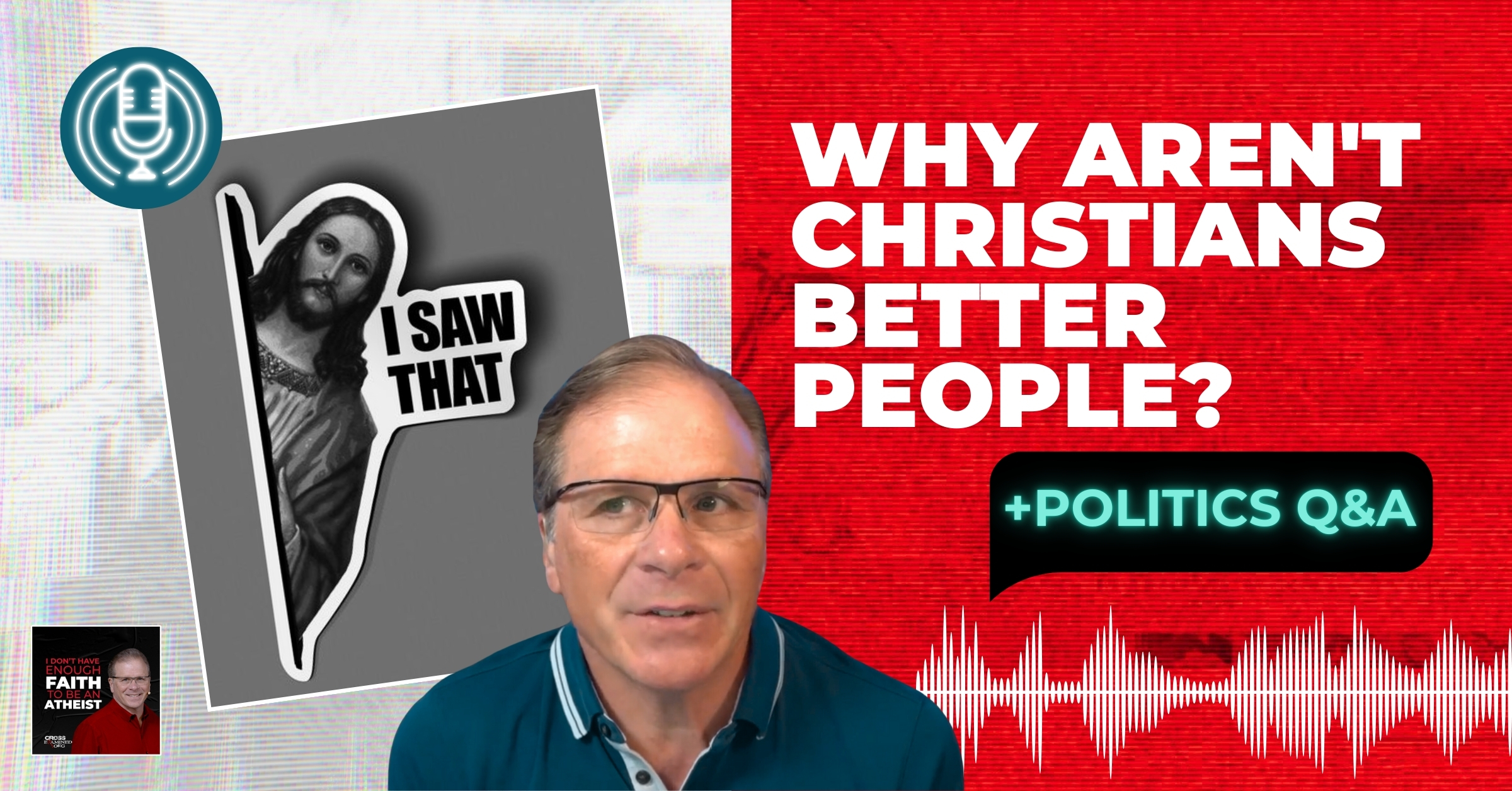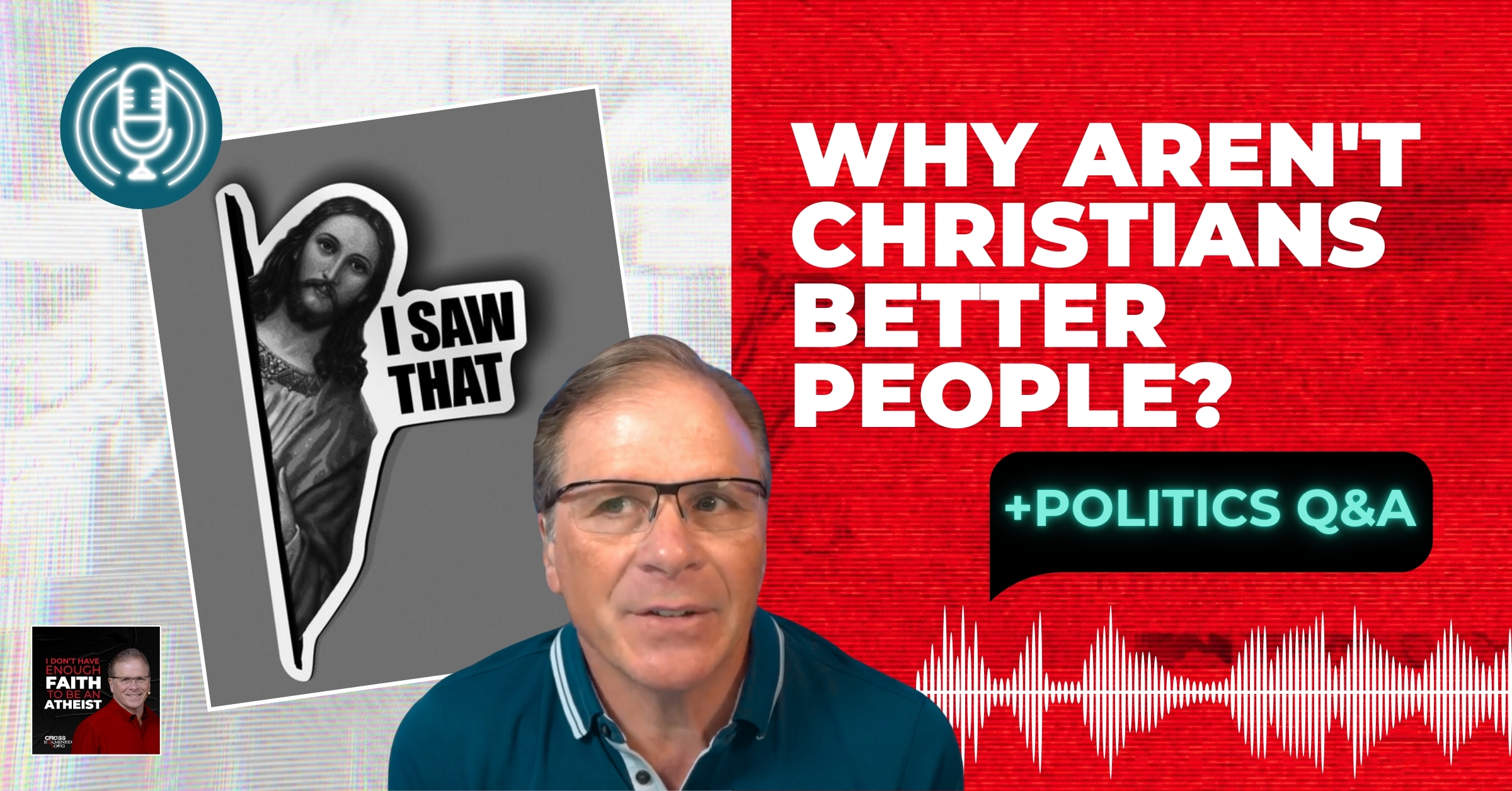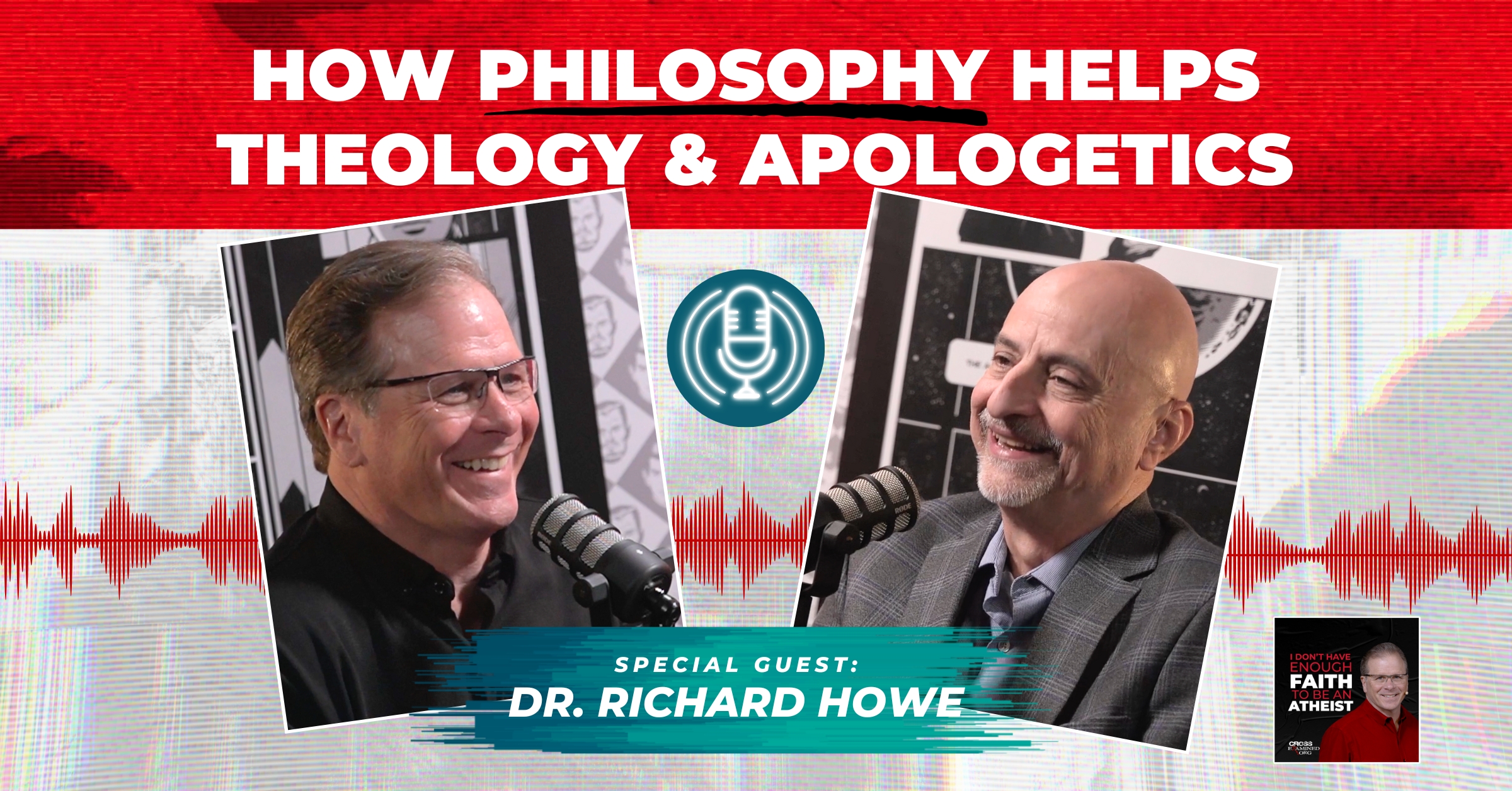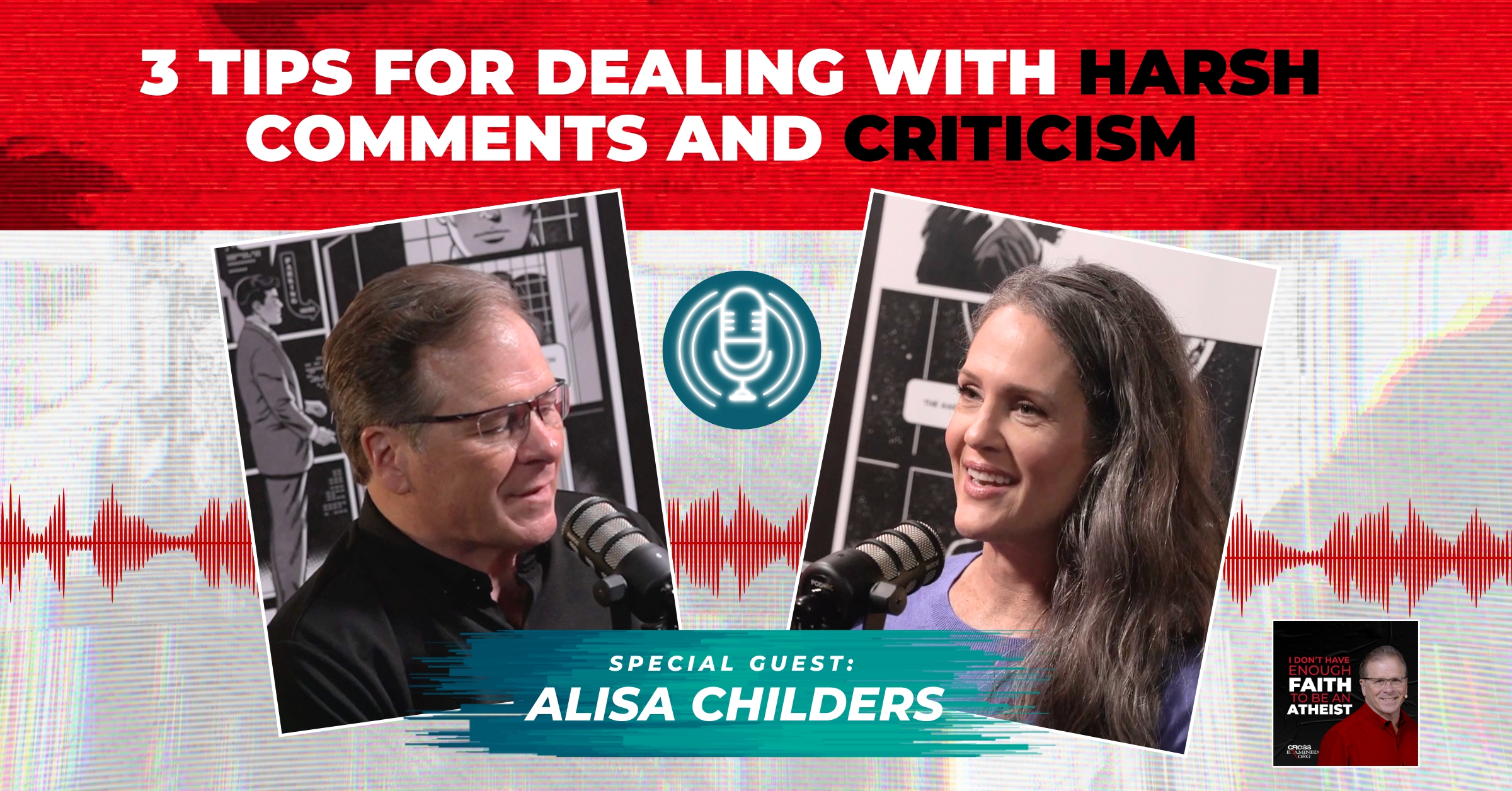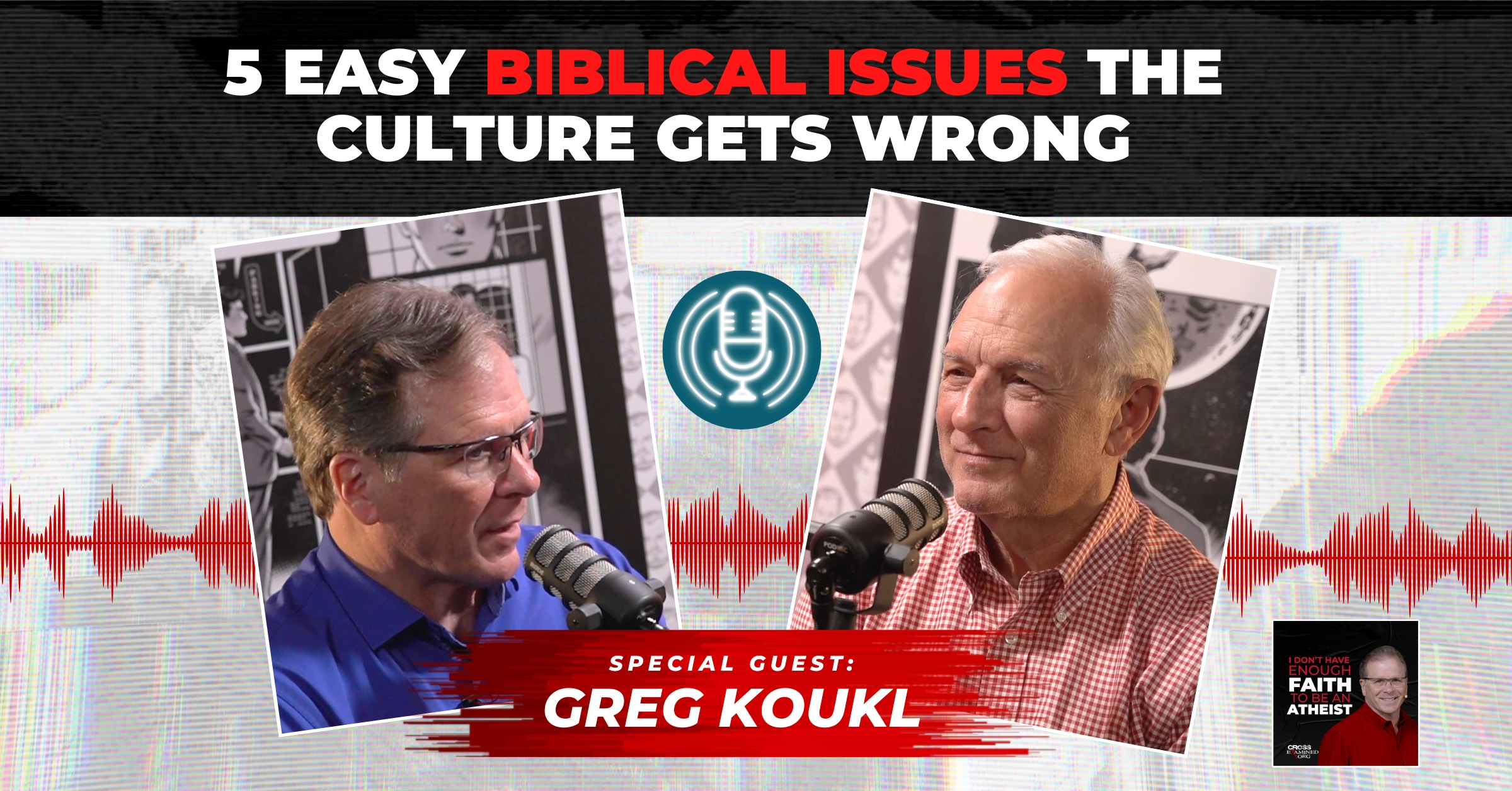Some skepticism is warranted. None of us want to live within a paradigm of naivety. No one wants to blindly accept every foolish notion that comes down the pipeline. A quick glance at social media along with the acknowledgment of the tweaks and twists that artificial intelligence can bring to videos and audio files only intensifies our need for discernment.

Even still, as believers, we must differentiate between discernment and all-out skepticism. Discernment evaluates data to see whether the information is valid and trustworthy. In contrast, skepticism doubts or denies claims that seem to be grandiose or beyond the status quo. Even more to the point, skepticism can deny propositional claims. When left unrestrained, skepticism could lead to doubt, which in turn can lead to the denial of propositions (i.e., truth claims). At worst, unrestrained skepticism can lead to cynicism.
The Infiltration of Skepticism in Conservative Apologetics
I have been troubled by the extreme form of skepticism that has entered the apologetic and theological world, especially within what has been considered conservative evangelical Christianity. When I first entered the apologetic world in 2007 and formally in 2012, apologists and conservative theologians alike were fairly settled on certain issues regarding miracles, biblical fidelity, and creationism. The pillars of the apologetic world, however, seem to be crumbling, instead adopting extreme forms of skepticism that deny veritable biblical truth claims.
At the same time, modern Christianity has adopted a celebrity culture. So, these icons of the time often go unquestioned by their fanbase. We would be well advised, however, to remember that truth is truth and error is error regardless of who speaks it. With that in mind, let us consider three avenues where we should be skeptical of modern skepticism.
Becoming Skeptical of Modern Human Skepticism (Miraculous Skepticism) [i]
David Hume was an English skeptic of the 16th century. Hume maintained that miracles could not be proven as historical events. While a full explanation of his view is beyond the scope of this article, Hume defined a miracle as “a transgression of a law of nature by a particular volition of the Deity, or by the interposition of some invisible agent.”[ii] Part of the problem in Hume’s analysis is that a Deity and/or invisible agent may work through the laws of nature to bring about certain ends. Gary Habermas offers a better definition, claiming that miraculous interventions should be understood as “the manifestation or presence of divine actions that temporarily or momentarily overrule or supersede nature’s normally observed, lawful pattern of events, or that appear to do so.”[iii]
Hume’s Circular Reasoning
A bigger problem with Hume’s assessment is that his argument is largely circular. Hume does not believe miracles can be proven because he does not believe miracles occur. And, like a self-fulfilling prophecy, if you do not believe that miracles occur, then you will deny any claim that purports to be miraculous.
Modern Hume in the Apologetic World?
While nearly all Bible-believing Christians will accept that God does perform miracles, the level of scrutiny that some biblical events have received by Bible-believing scholars is somewhat suspect. With modern scholars, the idea of a talking serpent seems absurd, even though the Bible is riddled with numerous miraculous events. Furthermore, for some, the idea that God could raise numerous saints from the dead around the time of Christ’s crucifixion appears beyond rational belief, all the while the same scholars defend Jesus’s own resurrection and His resurrection of others from the dead. So then, why is it that some stories appear absurd, and others don’t?
At the end of the day, we must ask ourselves whether we actually believe that God can do anything within God’s moral limitations. Sure, even the Bible says that God cannot sin because of His moral holiness, and God cannot do something that goes against God’s character (e.g., Titus 1:2). But do we believe that God can part the Red Sea? Do we really believe that God can raise the dead? If so, why do we place limitations on what God can do?
Becoming Skeptical of Modern Bultmannian Skepticism (Biblical Skepticism) [iv]
Rudolf Bultmann was a German theologian of the 19th century who was highly skeptical of the biblical texts. Bultmann promoted the demythologization of the Bible. That is, Bultmann believed that the Bible must be stripped of all its mythological elements to make it more palatable for modern scientific minds. As such, Bultmann held an informal uncontrolled mindset when it came to the oral traditions undergirding the life of Jesus. The informal uncontrolled model means that, according to Bultmann, no one was concerned about preserving accurate information about Jesus, and no one was selected to authenticate the material. Thus, the Gospels tell us next to nothing about the historical Jesus and more about the church’s belief about Jesus. Therefore, no one can know anything about the life of Jesus.
Oral Traditions
In my dissertation work, not only did I discover that Bultmann’s theory on oral traditions was wrong, but the Gospels texts also indicate that something more controlled was at hand when it came to the preservation of Jesus traditions.[v] As such, the data suggests that the Gospels are based on eyewitness testimony. We have good reasons to believe that Jesus rose from the dead, as well as other events in Scripture.[vi] If the data suggests that we have reasons for believing in the fidelity of Scripture and the stories it contains, then why do we find it necessary to cast doubt on the authenticity of the traditions of Jesus?
Is Harmonization a Sin?
Why is it such a sin to harmonize the Gospels as Michael Licona suggests if the Gospels indeed contain eyewitness testimonies? It seems to me that attempts to diffuse the mystical and miraculous elements of Scripture are falling back into the unjustified skepticism of Bultmann and his desire to demythologize the pages of the Bible. But the greater question is, what are we left with if we remove the divine power of God from the testimonies of Scripture? We’ll discuss that in the conclusion.
Becoming Skeptical of Modern Darwinian Skepticism (Creationary Skepticism)
Lastly, it seems as if theistic evolution has become the fad of the day. Since William Lane Craig published his book In Quest of the Historical Adam, I have observed many young apologists and would-be scholars falling in line with endorsing theistic evolution, even though evolutionary theory still suffers from the same methodological flaws that it ever has.
What happened to the apologists’s endorsement of the work of Stephen Meyer and the Discovery Institute? Through the years, Meyer has given ample reason to question Darwinianism. His book Darwin’s Doubt is one such example. Do we now cast aside Darwin’s Doubt just because it is popular to now follow the idea that much of Genesis 1–11 is mythological? Do we now openly reject classic creationist concepts by scientists like Hugh Ross, the staff at Reasons to Believe, and Answers in Genesis just because a well-known philosopher says to do otherwise?
Conclusion
Most assuredly, I am not trying to lambast Craig, Licona, or any of their followers. I have been blessed by many of their works in time’s past and have many friends who follow along with the concepts presented by the two men. And it should be noted that many other scholars could be included in the three aforementioned categories. But I am troubled by the following question: At what point should we become skeptical of our own skepticism?
As I had the pleasure of editing the book Why Creationism Still Matters with my good friends and colleagues Dr. T. J. Gentry and Dr. Michelle Johnson, it struck me how strong the case can be made for creationism. And it further troubled me why others feel the need to reject such a defense when in fact numerous scientists are questioning evolutionary theory as well.[vii]
Additionally, consider that we have spent thousands of years trying to understand what it only took seconds for God to create. God spoke, and the universe came into existence with all its laws, physics, and numerical values. Thus, if God is God, and the Bible is God’s Word, wouldn’t it behoove us to believe what God said?
Final Analysis
As an apologist, I most assuredly believe that the resurrection and events of the Bible stand on their own merit. Thus, I am not a fideist. Have we, however, encountered God and known the power He holds? If so, at what point should we begin asking if our latent skepticism reflects our own doubt more than it does the evidence within the text?
So, to summarize, why should we become skeptical of our skepticism? When our skepticism begins to offer more reasons not to believe in God’s power and His revelation, that’s when our skepticism exposes latent doubt more than our faith. We must then ask ourselves if we really believe in what we are leading others to believe. If we don’t, then why encourage others to believe at all? But if we do believe, then what good is it when we continuously downgrade what God has given us in His Word? And if we do believe, then at some point, we must become skeptical of why we are so skeptical.
Furthermore, we must also question if our skepticism has caused an even greater naivety, wherein we blindly follow whatever our favored philosophers or scholars say without considering the validity of their claims. In a sense, our unrestrained skepticism could lead to greater gullibility. Just some things to consider from a fellow disciple as we journey this life together.
References:
[i] Humean refers to the teachings of David Hume.
[ii] David Hume, An Enquiry Concerning Human Understanding, in the Essential Works of David Hume, Ralph Cohen, ed (New York: Bantham, 1965), 1:129n3.
[iii] Gary Habermas, On the Resurrection: Evidences, vol. 1 (Brentwood, TN: B&H Academic, 2024), 242.
[iv] Bultmannian refers to the teachings of Rudolph Bultmann.
[v] Brian G. Chilton, “Semitic Residue: Semitic Traits that Indicate Early Source Material Behind the Gospel of Matthew” (2022), Doctoral Dissertations and Projects, 3874, https://digitalcommons.liberty.edu/doctoral/3874.
[vi] See my contribution for an extensive defense of the resurrection in the upcoming book Thomas J. Gentry, ed., Strong Faith (West Frankfort, IL: IHP Practica, 2024).
[vii] For example, read “Scientists Dissent from Darwinian Theory,” Discovery.org (Feb. 12, 2019), https://www.discovery.org/v/darwin-dissenters-speak/. Also consider the mathematical problems related to Darwinianism, David Berlinski, Stephen C. Meyer, David H. Gelernter, “Mathematical Challenges to Darwin’s Theory of Evolution, With David Berlinksi, Stephen C. Meyer, and David Gelernter,” Interview, Hoover Institution, Hoover.org (July 22, 2019), https://www.hoover.org/research/mathematical-challenges-darwins-theory-evolution-david-berlinski-stephen-meyer-and-david.
Recommended Resources:
Debate: What Best Explains Reality: Atheism or Theism? by Frank Turek DVD, Mp4, and Mp3
Oh, Why Didn’t I Say That? Does Science Disprove God? by Dr. Frank Turek (DVD and Mp4)
Stealing From God by Dr. Frank Turek (Book, 10-Part DVD Set, STUDENT Study Guide, TEACHER Study Guide)
I Don’t Have Enough Faith to Be an Atheist (Paperback), and (Sermon) by Norman Geisler and Frank Turek
Brian G. Chilton earned his Ph.D. in the Theology and Apologetics at Liberty University (with high distinction). He is the host of The Bellator Christi Podcast and the founder of Bellator Christi. Brian received his Master of Divinity in Theology from Liberty University (with high distinction); his Bachelor of Science in Religious Studies and Philosophy from Gardner-Webb University (with honors); earned a Certificate in Christian Apologetics from Biola University, and plans to purse philosophical studies in the near future. He is also enrolled in Clinical Pastoral Education to better learn how to empower those around him. Brian is a member of the Evangelical Theological Society and the Evangelical Philosophical Society. Brian has served in ministry for over 20 years and currently serves as a clinical hospice chaplain as well as a pastor.
Originally posted at: https://bit.ly/4e4KBrE
